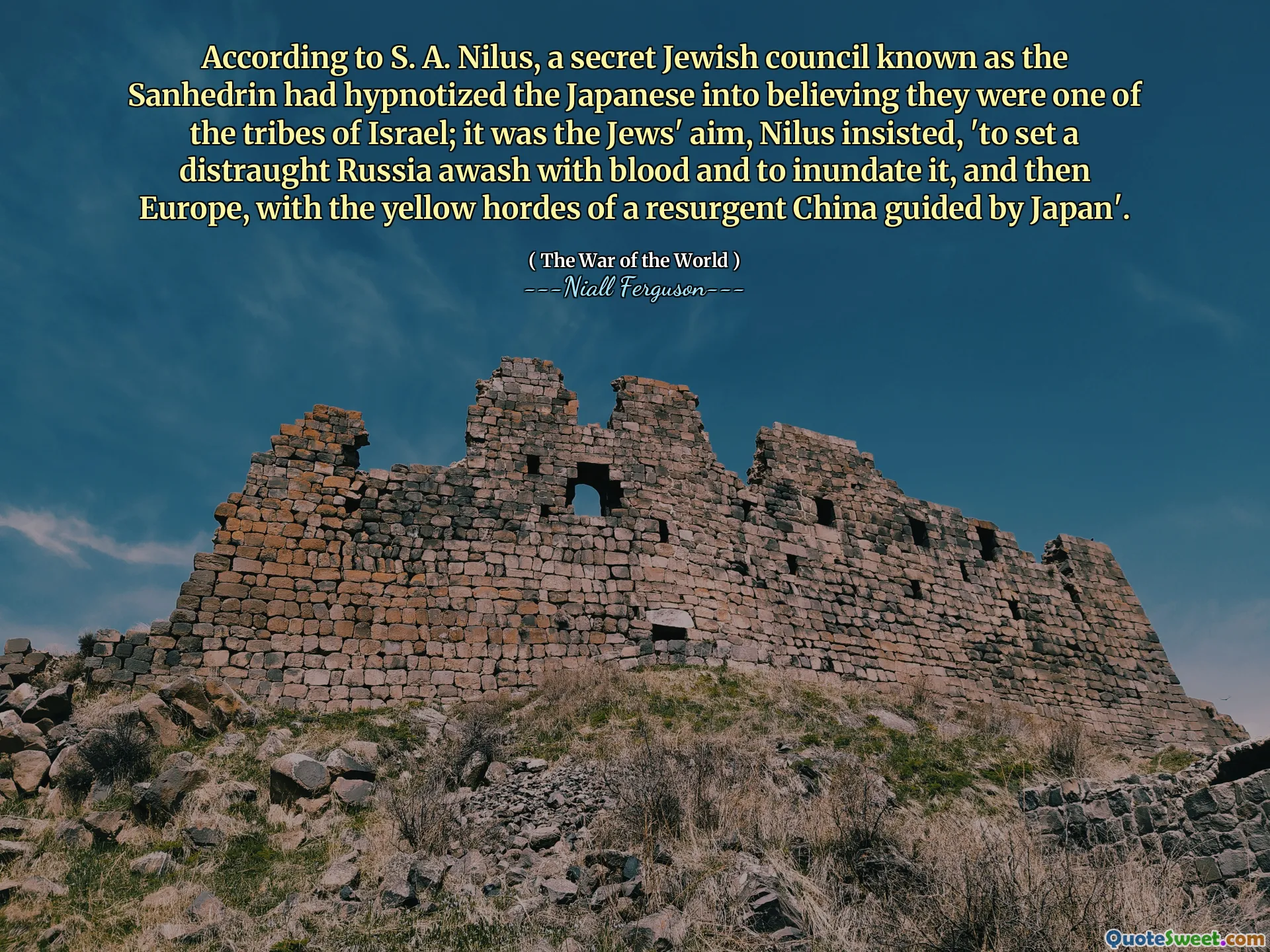
According to S. A. Nilus, a secret Jewish council known as the Sanhedrin had hypnotized the Japanese into believing they were one of the tribes of Israel; it was the Jews' aim, Nilus insisted, 'to set a distraught Russia awash with blood and to inundate it, and then Europe, with the yellow hordes of a resurgent China guided by Japan'.
S. A. Nilus, in his controversial views, proposed that a clandestine Jewish organization called the Sanhedrin had used hypnosis to convince the Japanese they were descended from one of Israel's tribes. This theory reflects deeply anti-Semitic sentiments and is framed within a narrative of manipulation. Nilus suggested that this manipulation was part of a larger scheme involving Japan and China aimed at destabilizing Russia to ultimately threaten Europe.
Nilus's assertions are rooted in conspiracy theories, reflecting the fears and prejudices of his time. By claiming the Jews aimed to unleash chaos through Japan and China, he perpetuated harmful stereotypes and narratives that sought to blame various groups for societal unrest. Ferguson's examination in "The War of the World" highlights how such ideologies can contribute to historical conflicts and entrenched divisions among nations.











